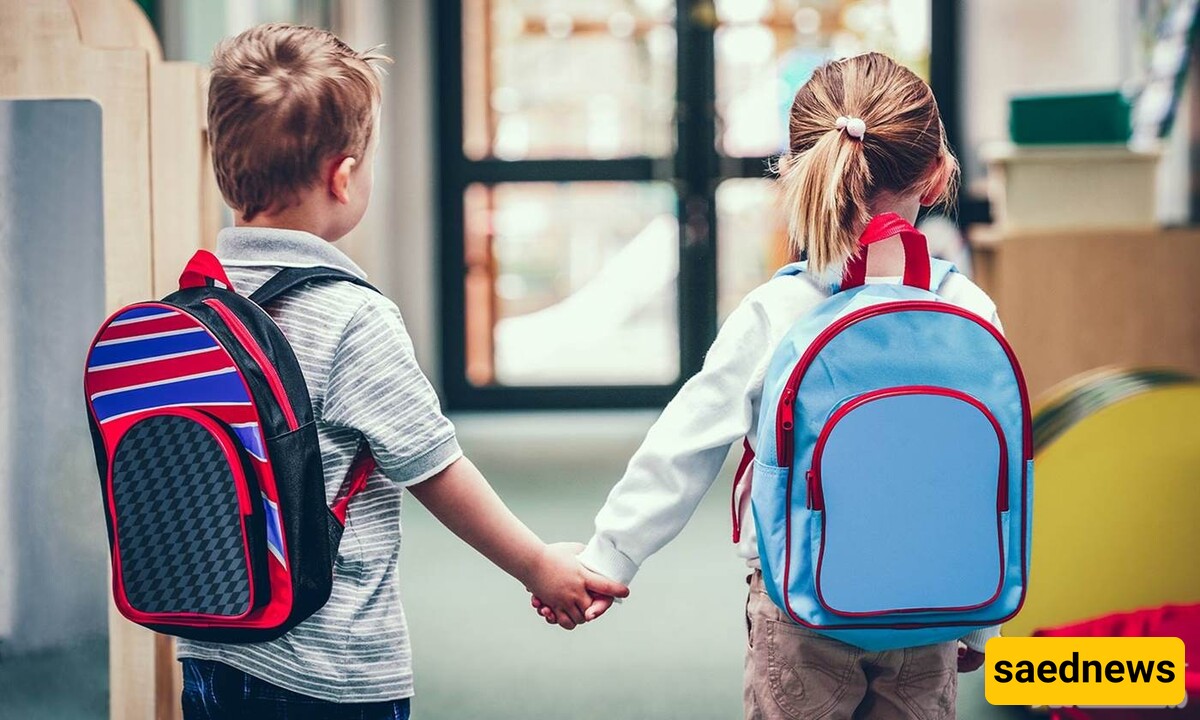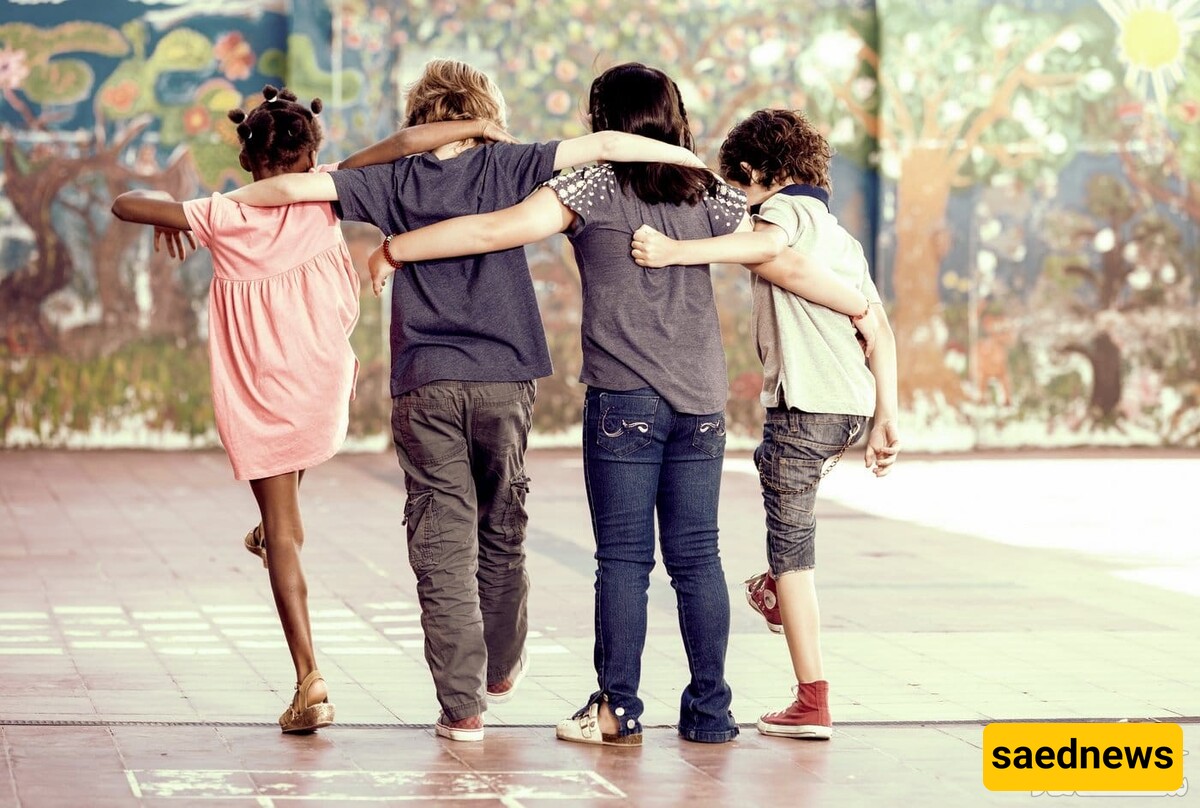Having friends is one of the most important social skills and missions for children, which lasts throughout their lives. Parents can help their children make friends and develop a better sense of self-worth by learning a few key strategies. This article explores ways to support children in making friends.

Friendship is a mutual relationship that involves companionship, participation, understanding thoughts and emotions, and providing comfort when needed. Having a close friend can protect a child from stress and loneliness, boost their self-esteem, and reduce anxiety and depression. Children who lack friendships and struggle to make friends often suffer from loneliness and lack social experience and skills.

Friendships and interpersonal relationship quality are strongly correlated with social skill development and emotional regulation. Directly teaching children how to make friends improves the quality of their friendships, whereas indirect parental guidance is not as effective. Psychologists believe that deep feelings of worthlessness or a lack of self-esteem contribute to many psychological disorders.
Self-esteem is the continuous evaluation and perception individuals have of their own worth. Students with higher self-esteem tend to perform better academically and engage more actively in school and community activities. Therefore, boosting self-esteem is essential for academic success. On the other hand, children with low self-esteem often display signs of depression and tend to isolate themselves in school settings.
If your child has difficulty making and maintaining friendships, try to determine the root cause:
Is your child overly sensitive, frequently feeling hurt and losing friends?
Is your child quiet and indifferent to social interactions?
Is your child aggressive or a bully, causing other children to avoid them?
Does your child lack social skills?
Does your child not have the necessary qualities of a loyal friend?
Parents should begin teaching basic social skills before their child starts school. This early preparation helps children form appropriate social connections with peers. Parents must first learn and implement the best methods for teaching social skills to ensure their child develops healthy and meaningful relationships in school.

As discussed earlier, parents play a fundamental role in teaching friendship skills. The first step is for parents to educate themselves on the best methods, which can be achieved through reading, attending workshops, and seeking guidance from experts. The next step is implementing these strategies at the right age for the best results.
After parents, teachers and educators play a crucial role in a child's social development. Once children enter school, they step into a social environment where parents are absent. At this stage, teachers play an essential role in guiding them through social interactions.
There is no universal formula for helping children make friends because each child has a unique social personality. However, several strategies can help improve social skills and foster meaningful relationships. It is important to focus on the quality of friendships rather than the quantity.
Children today differ significantly from past generations, largely due to changes in family structures. In the past, children had more socialization opportunities because families were larger, and parents had less time to focus on each child individually. This helped children develop independence and adapt to being away from their families.
However, with the rise of single-child families, parents dedicate all their time to one child, which can lead to overdependence on parents. While this has some benefits, it also creates challenges in developing social independence.
Invite your child’s friends over to your home.
Allow your child to attend school trips and extracurricular activities.
Enroll them in classes that interest them to nurture their talents and improve social skills.
Plan regular playdates and outings with friends.
If your child has a valuable friendship—even with someone from a different school—support that relationship. Arranging time for them to see friends outside of school teaches them how to maintain friendships.
When your child feels upset or angry with a friend, talk to them about managing their emotions. Teach self-regulation skills such as:
Saying calming phrases like, “I can stay calm,” or “I can handle this.”
Encouraging communication over physical aggression: “Talk, don’t hit.”
Practicing patience: “What’s the best thing you can do right now?”
Also, discuss strategies for dealing with teasing and bullying and how to establish healthy personal boundaries.
Identify any social skill gaps your child may have and work on them. For example:
If your child struggles with expressing emotions, model it by saying, “I feel happy when you say you love me.”
Help them label their emotions: “Did you feel sad when your friend didn’t want to play with you?”
Encourage your child to observe and recognize positive traits in others. Create a fun project where they make a friendship poster with stickers highlighting qualities of a good friend. Regularly discuss these traits and encourage your child to notice them in their friends.
Use role-playing and toys to teach social skills. This helps children practice:
Expressing emotions appropriately.
Understanding body language.
Using words that foster friendships instead of pushing others away.
If your child is shy, role-playing can help them recognize how withdrawing from social situations affects their friendships. Use this technique to teach common social interactions like greeting others, smiling, making eye contact, and sharing.
Some children prefer having many friends, while others are content with only a few close friendships. It’s important to respect their preferences and avoid comparing them to siblings or peers.
Children learn social skills by observing their parents. When greeting people, talking on the phone, shopping, or engaging in conversations, you are modeling social behavior. If you are shy, your child may adopt this trait. Being mindful of the behaviors you unintentionally pass on is crucial.
Spending time with other families helps children develop social skills in a safe environment. Group outings allow children to practice socializing while observing how their parents interact with others.
If your child comes to you with a friendship problem, listen attentively without immediately offering solutions. Show empathy and ask how they would like to handle the situation. Discuss possible outcomes and help them choose the best approach. This strengthens their problem-solving skills.
Children need to understand that not all classmates will want to be their friends, and that’s okay. Learning to handle rejection early builds emotional resilience and prepares them for future challenges.
Practice greetings and conversation starters with your child. Teach them how to introduce themselves:
“You can shake hands and say, ‘Hi, I’m Muhammad! What’s your name?’”
Encourage them to ask for clarification if they don’t catch someone’s name the first time.
If you attend a gathering where children are present, encourage your child to invite others to play. Suggest watching a cartoon together, playing a game, or sharing a snack. Provide opportunities for unstructured social interactions where they can take the lead.
Praise your child when they successfully make a new friend or interact positively with peers. Ask them about their friendships regularly to reinforce positive social behavior.
Even if you believe a particular child would be a great friend for your child, avoid forcing the relationship. The more you insist, the more likely your child will resist your suggestion.
If your child is self-conscious about their appearance (e.g., height, weight), acknowledge their feelings and reassure them that friendships are based on personality, not looks. If body image concerns persist, consider seeking professional guidance.
Teaching children how to build friendships is crucial for their happiness and well-being. Even highly successful individuals may struggle socially if they lack strong relationship skills. If your child has persistent difficulties making friends, consider seeking help from a child psychologist or counselor.

